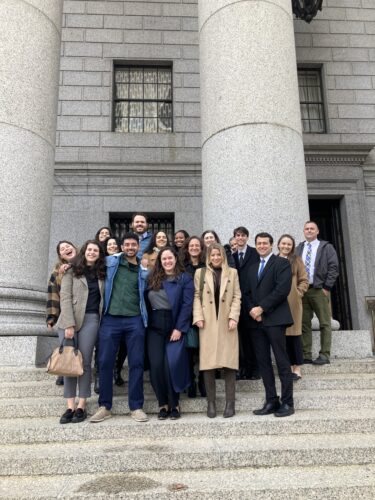
Litigation
Impact litigation is a powerful tool in our efforts to improve education law and to change the systemic practices and policies we have identified within the New York City Department of Education (DOE) that violate state or federal law. Whether we are filing a class action, a lawsuit on behalf of an individual, or a “friend of the court” amicus brief outlining AFC’s support for a certain legal outcome, the goal is the same: to ensure access to a quality education for all New York City students. Indeed, AFC’s impact litigation has protected the right to learn not only for the thousands of clients we serve each year, but for all of the 1.1 million students in the New York City public schools.
-
Meet our team
Rebecca Shore
Director of Litigation (she/her)
Brianna Kitchelt
Staff Attorney for Impact Litigation and Direct Services (she/her)
Questions about an impartial hearing order?
Call our L.V. hotline
9 Results Found
Federal class action lawsuit on behalf of a class of students who were illegally pushed out of Boys and Girls High School in Brooklyn’s Bedford Stuyvesant neighborhood.
